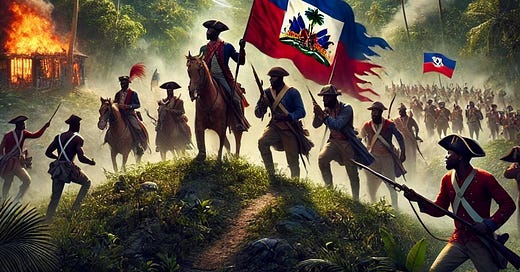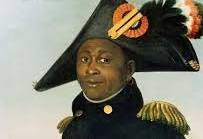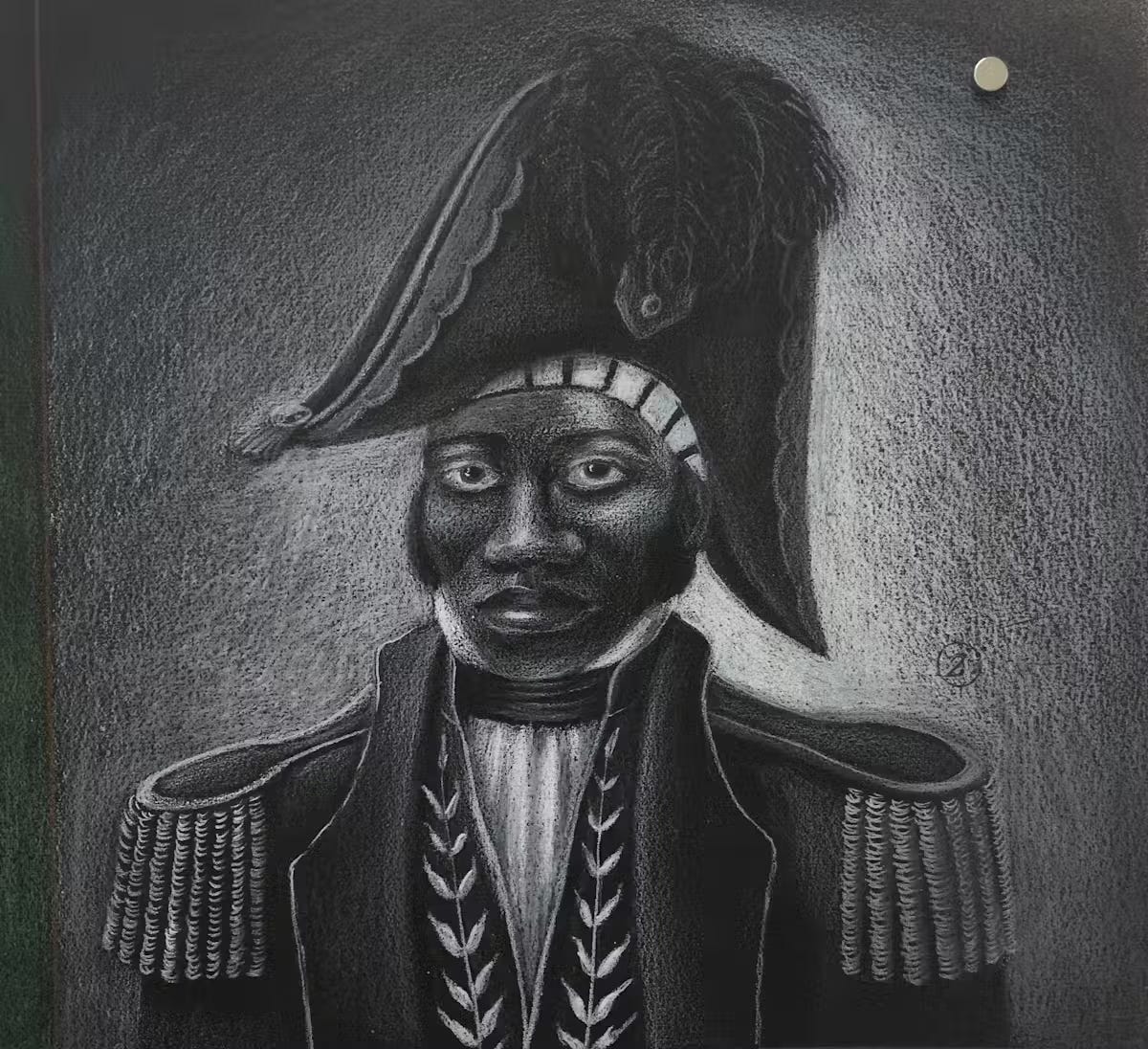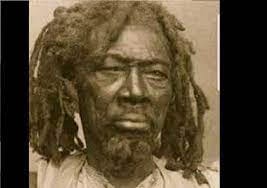The Haitian Revolution (1791–1804): The Only Successful Slave Rebellion in History
Black History Through the Lens of Liberation
The Haitian Revolution wasn’t just a fight for freedom—it was a spiritual, cultural, and military upheaval that reshaped global history. This wasn’t just a fight for freedom—it was a radical, world-changing event that proved what enslaved people could achieve when united under the shared goal of liberation. For over a decade, enslaved Africans in the French colony of Saint-Domingue rose up against one of the most powerful colonial empires of the time, not only securing their freedom but establishing Haiti as the first free Black republic in the world.
This revolution was fueled by more than strategy; it was powered by ancestral strength, Vodou spirituality, and the collective determination to liberate future generations.
For the enslaved, freedom wasn’t just political—it was sacred. The spirits of their ancestors were present, guiding them through the most critical battle for liberation in modern history.
This revolution defied expectations, challenged the global system of slavery, and continues to be a beacon of hope, resilience, and Black power.
The Origins of Rebellion: More Than Just a Desire for Freedom
By the late 18th century, Saint-Domingue (now Haiti) was the most profitable colony in the world, thanks to its sugar and coffee plantations. But that wealth was built on the backs of enslaved Africans who endured brutal treatment under French rule. The social structure was rigid and cruel, with a small elite of white planters at the top, a growing population of mixed-race free people of color, and hundreds of thousands of enslaved Africans at the bottom.
But the enslaved population wasn’t just enduring—they were organizing. Drawing on African spiritual traditions, political knowledge, and experiences of resistance, the enslaved people of Saint-Domingue began to plan their uprising. The spark came in 1791 when a Vodou ceremony, led by priest Dutty Boukman, ignited the revolution.
Reflection: What role does spiritual and cultural knowledge play in movements for liberation?
The Spiritual Catalyst: The Vodou Ceremony That Sparked a Revolution
The Haitian Revolution is often said to have begun with a Vodou ceremony held at Bois Caïman in August 1791. Led by Dutty Boukman, a spiritual leader and houngan (priest), and Cécile Fatiman, a mambo (priestess), this ceremony wasn’t just about ritual—it was a declaration of war. They called upon the spirits of the ancestors and the lwa (deities of Vodou) to bless their uprising, offering prayers for strength and guidance.
Vodou, far from the Hollywood misconceptions that paint it as "dark magic," was a source of empowerment, resilience, and unity for the enslaved. It connected them to their African roots and reminded them that they were not alone in their fight. The ancestors, who had endured generations of violence and survived the Middle Passage, were invoked to protect and guide them toward victory.
Dutty Boukman’s Prayer August 14, 1791:
"The god who created the earth; who created the sun that gives us light. The god who holds up the ocean; who makes the thunder roar. Our God who has ears to hear. You who are hidden in the clouds; who watch us from where you are. You see all that the white has made us suffer. The white man's god asks him to commit crimes. But the god within us wants to do good. Our god, who is so good, so just, He orders us to revenge our wrongs. It's He who will direct our arms and bring us the victory. It's He who will assist us. We all should throw away the image of the white men's god who is so pitiless. Listen to the voice for liberty that speaks in all our hearts."
Reflection: How can reconnecting with ancestral knowledge and spiritual strength empower us in modern liberation work?
The Role of Vodou Throughout the Revolution
Vodou wasn’t just present at the start of the revolution—it was woven into every stage of the struggle. Ceremonies were held before battles to bless the fighters and invoke protection. Soldiers carried amulets, charms, and spiritual tokens believed to shield them from harm. Their belief in the power of the ancestors and the lwa gave them a psychological edge, instilling a sense of invincibility and divine purpose.
In this way, the Haitian Revolution was not only a war against colonial forces but a spiritual war against the dehumanization of Black people. By reclaiming their African spirituality, the revolutionaries also reclaimed their humanity.
Reflection: What role does reclaiming spiritual practices play in decolonization and liberation?
Honoring Ancestral Knowledge in Modern Liberation Work
The Haitian Revolution teaches us that freedom is spiritual, collective, and deeply rooted in ancestral wisdom. In today’s liberation movements, we honor this legacy by reconnecting with cultural practices, telling the stories of our ancestors, and rejecting narratives that erase their contributions.
By reclaiming ancestral knowledge—whether through spirituality, oral histories, or cultural practices—we ground ourselves in the truth that liberation has always been within our reach.
Actionable Step: Find a way to connect with an ancestral practice or story this week, and reflect on how it can guide your work today.
Key Figures of the Haitian Revolution
The revolution saw the emergence of several powerful leaders, including:
Toussaint Louverture: Known as “the Black Napoleon,” Louverture was a brilliant military strategist and leader who played a crucial role in organizing the resistance.
Jean-Jacques Dessalines: Louverture’s successor and the general who led the final assault against the French, ultimately declaring Haitian independence in 1804.
Dutty Boukman: A spiritual leader whose Vodou ceremony is said to have been the catalyst for the initial uprising.
These leaders understood that freedom wasn’t just about breaking physical chains—it was about creating a new world order where Black people could govern themselves.
Actionable Step: Research one of these figures and reflect on how their leadership contributed to the success of the revolution. (I even have links to help)
Victory and Global Impact: Breaking the Chains of Slavery and Colonialism
After more than a decade of resistance, Haiti declared its independence in 1804, becoming the first nation to be founded by formerly enslaved people. The victory was unprecedented, as the revolutionaries defeated Napoleon’s army—the most powerful military force in the world at the time.
But this victory came at a cost. Haiti was economically isolated and politically ostracized by slaveholding nations, which feared the ripple effect of its success. Despite these challenges, Haiti’s resilience and the spiritual foundation laid during the revolution kept its people moving forward.
Lesson for Today: Just as the revolutionaries didn’t rely on external validation or approval, modern liberation movements should prioritize internal strength and self-determination.
The Myth of the “Good Slaveholder”: Why We Don’t Center White Savior Narratives
The Haitian Revolution stands as proof that enslaved people didn’t wait for freedom to be handed to them—they took it. This is a necessary correction to the whitewashed narratives that frame liberation as something granted by benevolent white leaders. The idea that “Lincoln freed the slaves” in the U.S. is as harmful as it is false, and it ignores the truth that enslaved Africans fought for their own freedom, often at unimaginable costs.
As with Robert Smalls’ escape, the Haitian Revolution reminds us that self-liberation was—and is—an active, ongoing process.
Reflection: In what ways can we ensure that liberation stories center the voices of those who fought for their own freedom?
Why the Haitian Revolution Matters Now
In a world still shaped by the legacy of colonialism and slavery, Haiti’s revolution serves as a reminder that liberation is possible when we organize, resist, and refuse to accept oppression as inevitable. It also reminds us of the importance of telling our own stories—stories of resistance, resilience, and victory that challenge the dominant narratives of victimhood and helplessness.
The Haitian Revolution teaches us that freedom is won, not given, and that our ancestors carried within them the power to not only resist but to create a new reality.
A 28-Day Journey Through Black Resistance and Liberation
The story of the Haitian Revolution is one of the many powerful lessons included in my 28-Day Journey Through Black Resistance and Liberation. This resource is more than a curriculum—it’s a living document, continuously updated to reflect our ongoing commitment to sharing stories that uplift and empower.
🌱 Join the journey today: https://desireebstephens.bio/shop/98d6f2f8-2827-4291-b29c-1ceaf77deaac
Liberation doesn’t come without risk, but as Haiti’s revolution showed, collective action and resilience can lead to lasting change.
We don’t wait for freedom—we create it, just as our ancestors did.
In solidarity and liberation,
Desireé B. Stephens CPS-P
Educator | Counselor | Community Builder
Founder, Make Shi(f)t Happen








What always strikes me about the Haitian revolution story is that it took TEN YEARS!
I want more of us to understand how our revolution will not happen over night. It’s a long long long fight.